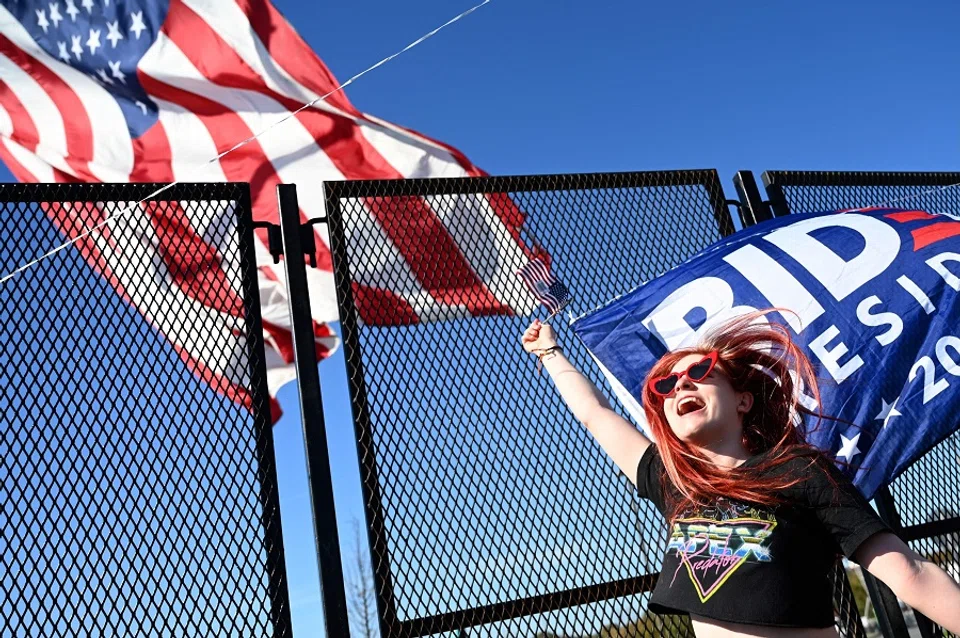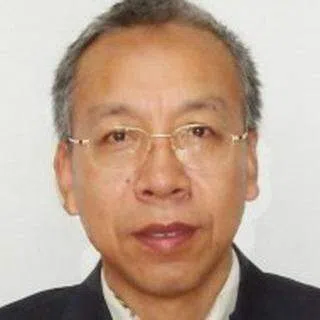Chinese liberal intellectuals divided over Trump and the US elections
Liberal intellectuals in China are not a monolithic group. While the elites within the community once served to moderate divergent views, disagreements laid bare by the recent US elections shows that deeper schisms run deep, especially between those espousing conservative and liberal views.

The 1980s saw the gradual formation of a liberal intellectual group in mainland China. Despite suffering political and societal upheavals since the late 1980s, the group has continued to thrive. Strictly speaking though, referring to them as a "group" is inaccurate - in mainland China, liberal intellectuals are not an organised group and do not follow rules and regulations, and neither do they have leaders or specific organisers and followers. They are merely individuals who are of the same mind. Thus, they should more accurately be described as a community who share the same thinking and values.
Over the past 30 years, mainland China's liberal intellectuals have maintained a common if not similar stance on major social issues or specific events. Their divergent views on the 2020 US presidential election, however, is an anomaly.
...discussions within the group have evolved from just exchanging views to that of adopting confrontational positions, engaging in intense bickering and even making insulting remarks. In fact, many arguments have led to a severing of ties.
An intellectual class divided
Since November 2020, the volatile US electoral race has garnered much attention around the world, not least among mainland Chinese liberal intellectuals. The latter have been split down the middle on whether or not to support US President Donald Trump. Commenting on such raucous debates, Zi Zhongyun (former head of the Institute of American Studies at the Chinese Academy of Social Sciences) said that she has observed for some time now that among her contemporaries, one can hold similar views on universal values and domestic issues, but have differing views on the US.
Actually, having "differing views on the US" is something of a euphemism as discussions within the group have evolved from just exchanging views to that of adopting confrontational positions, engaging in intense bickering and even making insulting remarks. In fact, many arguments have led to a severing of ties. Clearly, debates around the US presidential elections have laid bare a schism never seen before among mainland China's liberal intellectuals.

On the surface, such a schism is about a difference in views on whether one should support Trump or not. But to a certain extent, it also reflects major ideological and perception shifts in the community of liberal intellectuals in mainland China.
Doubting elites in authority
The shift is, first of all, a rethinking of the role of "the power elite". Elites have always played a pivotal role in China's traditional history and political culture. Regardless of whether their elitist identity stems from an official title, societal acknowledgements or personal contributions, these elites have been installed as key pillars of society and their words and deeds have an important demonstration effect on the general public.
In the case of liberal intellectuals, over the past 30 over years, outstanding ones among them have reached positions of authority within the group, either through their vast experience within the Chinese system, opinions expressed on public matters or involvement in social issues. Their views and assessments are highly valued by the group and they play an important role in synthesising and giving coherence to the group's ideology and thoughts.
The traditional sense of "elite worship" has lost its cachet among a new generation of intellectuals born in the 1980s and 1990s.
However, on the issue of the US presidential election, elite views among liberal intellectuals did not hold sway in the way it usually did. In fact, some of them were met with criticisms and attacks from different voices in the community. Behind this rare occurrence lies a mindset change about the power elite among the liberal intellectuals in mainland China. The traditional sense of "elite worship" has lost its cachet among a new generation of intellectuals born in the 1980s and 1990s. Additionally, with the greatest leveller - the internet - coming to the fore, social life is becoming less hierarchical; the "hero-worship" of the past engendered by a gulf between the elites and the general public has also gradually been replaced by dialogues conducted on an equal footing. Under such circumstances, some among the liberal intellectuals are beginning to hold a different view of traditional elites and their authority.
Firstly, in terms of social development, while the power elite may possess outstanding values and intellectual rationality, their thoughts and views may not be representative of the interests and opinions of every social class, and they may not be striving for a better society as well. Secondly, within the community of liberal intellectuals, the elite could make erroneous judgements too, just like the general public. Besides, getting things right in the past does not mean that one will always be right; authority in a certain historical phase or a particular event does not necessarily extend to the present.
Yet, on the topic of the US presidential election, some among the mainland's liberals have become aware that while an unfree press certainly has no neutrality to talk about, it is not necessarily true that a free press would always be unbiased on every issue.

No longer on higher ground
Ideological shifts among liberal intellectuals also revolve around questioning the neutrality of a free press. The classical theory of communication holds that the media should not be biased and should report all facts in an objective and fair manner. In a free society, the neutrality of a free press is not only a theory on paper, but a practical state of society. An unbiased media is like an information distribution centre: it objectively reports various phenomena and issues, rejects selective reporting, and will not provide biased opinions easily. It is because of this neutrality that the media of a free society can be the "fourth pillar of democracy" after the legislature, executive, and judiciary. Thomas Jefferson, the third US president, once said, "[W]ere it left to me to decide whether we should have a government without newspapers or newspapers without a government, I should not hesitate a moment to prefer the latter."
Mainland Chinese liberal intellectuals naturally identify with the media neutrality theory because of the social milieu they live in, in which the media is chiefly concerned with the emphasis on one's clear political stance, and not objectivity and neutrality. The Chinese media's position is clearly defined as a mouthpiece that mainly provides publicity, boosts morale and gives praise. While there are occasional criticisms, they are done selectively or limited to particular aspects.
Yet, on the topic of the US presidential election, some among the mainland's liberals have become aware that while an unfree press certainly has no neutrality to talk about, it is not necessarily true that a free press would always be unbiased on every issue. Jean-Jacques Rousseau once said, "Man is born free and everywhere he is in chains." In an unfree society, the media is the government's vassal. But in a free society, the media can also submit to the demands of capital or interest groups.
Systemic ills
Ideological differences in the liberal intellectual community of mainland China are also reflected in differing opinions over whether a good system can curb the evil nature of humanity. Based on history and reality, liberal intellectuals think that many social problems arise from an unjust and unreasonable institution design, or what is in essence, the evil nature of the system. A bad system not only leads to the failure of the system but also distorts human nature and results in the collapse of society. On the contrary, once a good system is in place, it would be powerful and well-equipped to resist and fight against humanity's evil nature, and prevent evil forces from swallowing social interests and infringing on individual rights. Thus, many liberal intellectuals pinned their hopes on a good political and legal system.
Emboldened by technology, the evil nature of man is even more insidious and may have gone beyond the realm that one has experienced or can imagine.

However, the US elections seem to have changed some of these opinions. While society indeed needs a good system, there is no clear answer as to whether a good system can counter the corrosiveness of man's evil nature. Often, it is just a hunch that a good system would be able to do so.
In past eras, the extent of human evil may have been fully understood by the people, and a few "good systems" were designed on the foundation of this knowledge to effectively deal with these evils. Yet, humanity today has entered a new information age. Emboldened by technology, the evil nature of man is even more insidious and may have gone beyond the realm that one has experienced or can imagine. Under such circumstances, whether good systems built upon past foundations can continue to exist is already questionable, let alone relying on them to resist the evils of human nature.
Conservatism and liberalism go head to head
The aforementioned major ideological shifts of liberal intellectuals in mainland China is related to the intense electoral race in the US and China's own political environment, but is even more closely related to the tussle between conservatism and liberalism in the group. Thus, even after the US elections are done and dusted, such divisions would persist.

Here, conservatism and liberalism refer to political and legal ideologies imported from the West. Unlike Western society where conservative traditions predate liberalism, liberalism was introduced earlier and spread more widely in Chinese society because of the confluence of the times, and its dovetailing with the idea of "revolution" within a longer historical period. It is on this foundation that the intellectual framework and overall image of the liberal intellectual group was formed. Conservatism, on the other hand, did not gain widespread acceptance in China's intellectual community because of its "departure from revolution" and its susceptibility to misunderstandings in Chinese semantics. Thus, it only managed to gain strength stealthily, and develop a small following. Because of its weak influence, and more importantly, because people with a conservative stance and mindset understand and accept liberalism easily, this conservative camp agreed with the liberals on many topics and were classified as "liberals" in the past.
...such a framework where different ideologies coexist could be one that China needs in its ideological mind map of the future.
However, on the topic of the US elections, the conservative camp, which has been slowly gaining ground over time, began to show its divergence from the larger group of liberal intellectuals. Beneath the pro-Trump/anti-Trump debate lies a rethinking by some intellectuals in mainland China of the traditionally-held "universal values" in the political and legal realms. These people no longer think highly of man's "rational planning" abilities to order society - to them, liberalism itself has become the "shackles of freedom"; certain liberal ideals have turned into the dogma of "political correctness" and are obliterating individual needs, ignoring individual struggles, and endangering social order and social traditions.
There is no denying that such ideological fissures will deepen the schism among mainland China's liberal intellectuals. Yet, at the moment, this is not a big cause for concern because both camps are likely to still maintain strong interactions and cooperation on major social issues. Moreover, such a framework where different ideologies coexist could be one that China needs in its ideological mind map of the future.
Related: Why intellectuals failed to flourish throughout 5000 years of China's history | The US remains leader and pioneer of civilised societies despite unsettled election | If the world needs a new ideology, can the Chinese model be accepted? | Liberalism and globalisation serves the elites; the world needs a return to the nation state





![[Photos] Fact versus fiction: The portrayal of WWII anti-Japanese martyrs in Taiwan](https://cassette.sphdigital.com.sg/image/thinkchina/3494f8bd481870f7c65b881fd21a3fd733f573f23232376e39c532a2c7593cbc)